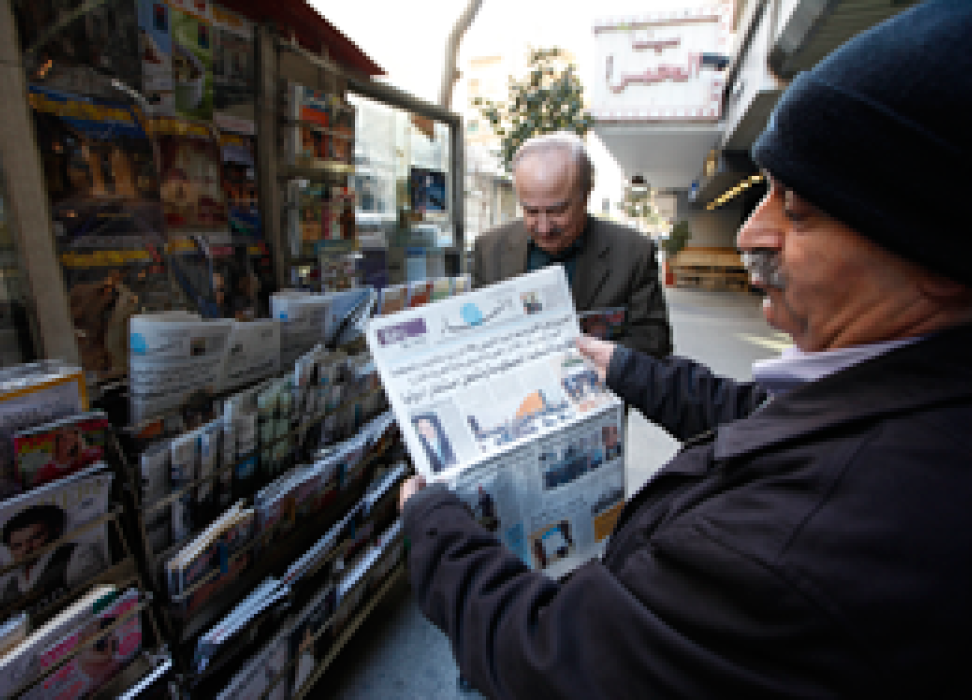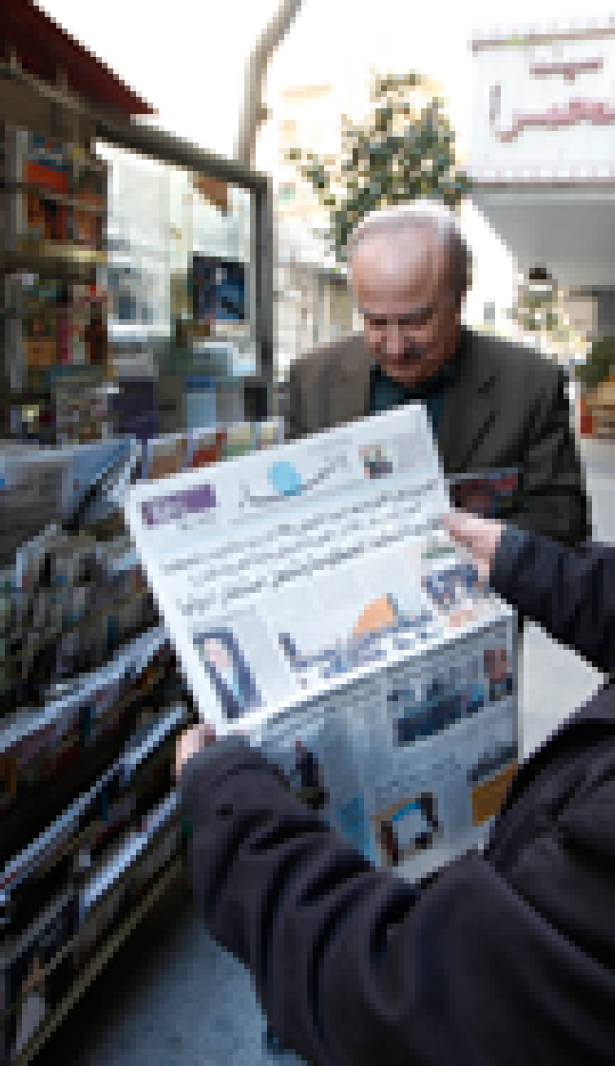Journalists in the Arab World: the courage of speaking the truth to power
14 August 2014

Journalists in the Arab world must overcome tremendous challenges covering human rights-related stories, often facing death threats, imprisonment, threats of expulsion, blackmail, offers of bribes and more on a daily basis A Jordanian journalist, who requested anonymity for this story, recently told a gathering of media professionals from the Middle East and North Africa region (MENA): “Speaking truth to power is the ethical responsibility of every journalist.”
“Unfortunately, many of those journalists who have, through their writings, defied the existing rules and demanded that official power be exercised equitably and humanely have been intimidated and even killed during the past several decades,” she said.
The UN Human Rights Office recently convened a specialist training course, which offered media professionals from MENA the opportunity to express their sometimes quite divergent views about media coverage of human rights in the region. The debate between editors, reporters, and human rights professionals highlighted the dilemma, which has human rights principles involving questions of law, morality and political philosophy under-reported with the focus of most journalism on facts-on-the-ground and what-happened-when.
The training was geared to build the capacity of regional journalists in the reportage of human rights by, for instance, encouraging them to shed light on issues related to social and economic rights and equipping them to recognize and utilise a human rights angle in their reporting, particularly when considering human rights violations.
“For me, journalism is not a vocation for providing entertainment for people,” said Abbas Saleh, one of the participating journalists from Lebanon, “it is a critical means for promoting democracy and human rights.”
Elobaid Elobaid, head of the Doha-based UN Human Rights Training and Documentation Center for South-West Asia and the Arab Region said “In general, data on human rights violations and on human rights standards is not lacking. However, the impact of this information on the public is not as great as might be expected.”
Former Moroccan Human Rights Minister Dr. Mohammed Aujar, said human rights issues became more prominent both in public policy and public opinion in the aftermath of the Arab spring. Addressing the participants, he said this upsurge of interest in human rights had been reflected in the media. However, Aujar, added that, although journalists have expanded their coverage on human rights issues into new areas, many human rights violations are underreported by the media.
“Much reporting focuses on violations of human rights during conflicts. Human rights issues are less visible when there is no conflict.” Aujar said.
“As a journalist, I believe my primary role is to obtain information, verify it with objectivity and make it known,” said Kaouther Daoud, a Moroccan journalist. “I do not believe that my function is to influence my audience’s opinion in deciding what needs to be done with this information.”
Youssef Hanani, a journalist from Morocco, contested Kaouther’s opinion, emphasizing the journalists’ “particular responsibility to defend values, including the values of human rights.”
Another of the participants, a journalist from Egypt, who also requested anonymity, predicted that, “Unless governments commit themselves to eliminate all forms of official interference in the work of journalists and remove all obstacles to the exercise of free media, the quality of media reporting on human rights issues will keep falling.”
One of the outcomes of the dialogue was the creation of a social media page, which features human rights stories and promotes a human-rights based approach to media coverage.
The training, in Rabat, Morocco, was jointly organized for the fourth consecutive year by the UN Human Rights Training and Documentation Center, in cooperation with the Al Jazeera’s Human Rights and Public Liberties department, the United Nations Educational, Scientific and Cultural Organization and the Doha Center for Media Freedom.
14 August 2014

